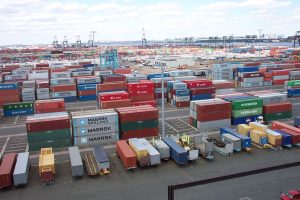Collecting unpaid logistics bills can be a significant challenge, especially in emerging markets where legal systems, financial stability, and business practices can vary greatly. This article explores the best practices for recovering debts in such environments, emphasizing the importance of understanding legal frameworks, employing strategic debt recovery methods, implementing robust credit management, leveraging technology, and considering cultural factors. By adopting these practices, businesses can improve their chances of collecting unpaid bills and maintaining financial health.
Key Takeaways
- Familiarize with both local and international laws to navigate the complex legal landscape of emerging markets for debt collection.
- Employ strategic negotiation, mediation, and arbitration to recover debts while maintaining business relationships.
- Implement stringent credit management practices including thorough credit checks and clear payment terms to mitigate risks.
- Utilize technology such as automated invoicing and data analytics to enhance efficiency and predict payment behaviors.
- Cultivate strong relationships with clients and local partners, respecting cultural nuances to facilitate smoother transactions and debt recovery.
Understanding the Legal Framework
Identifying Local and International Laws
We must first anchor ourselves in the legal landscape. Understanding the laws that govern debt collection in each market is crucial. It’s not just about knowing the rules; it’s about interpreting them in the context of global logistics.
- Research local laws and regulations
- Examine international laws applicable to debt collection
- Understand the implications of the United Nations Convention on International Sale of Goods (CISG)
Our approach is always informed by a deep dive into the legalities that frame our actions. We ensure compliance while strategizing for maximum recovery.
By aligning our practices with both local and international legal standards, we safeguard our operations against legal pitfalls and enhance our chances of successful debt recovery.
Navigating Through Jurisdictional Challenges
When we’re collecting unpaid logistics bills in emerging markets, jurisdictional challenges can be as daunting as the debts themselves. We must navigate a maze of local regulations, which often differ vastly from our own legal systems. Our first step is to understand the jurisdiction where the debt was incurred and where the debtor operates.
- Identify the applicable legal system and its implications for debt collection.
- Determine the enforceability of judgments across borders.
- Engage with local legal experts to bridge gaps in understanding.
We’re not just collecting debts; we’re navigating a complex global legal landscape. Our success hinges on our ability to adapt and act with precision.
By tackling these challenges head-on, we position ourselves to recover what’s owed effectively and efficiently. It’s about being proactive, strategic, and culturally aware in our approach.
Leveraging Bilateral Agreements and Treaties
In our quest to recover unpaid logistics bills, we must not overlook the power of bilateral agreements and treaties. These legal instruments can be pivotal in asserting our rights across borders. We leverage these agreements to ensure compliance and facilitate debt recovery in a manner that respects international law.
- Understand the scope of the agreement or treaty
- Identify how it applies to your case
- Engage with local authorities to enforce terms
By aligning our strategies with these agreements, we create a framework that supports our legal and financial claims.
It’s essential to have a clear grasp of the specific provisions and how they can be activated in our favor. The article explores the economic impact of unpaid logistic bills and the role of legal frameworks in mitigating global supply chain disruptions. We offer solutions that are grounded in data, underscored by legal obligations, and enriched by relevant case studies.
Strategic Approaches to Debt Recovery
Assessing the Debtor’s Financial Situation
Before we dive into recovery, we must first understand the debtor’s capacity to pay. It’s not just about what they owe; it’s about what they can settle. We start with a financial health check, analyzing their cash flow, assets, and liabilities. This gives us a clear picture of their financial stability and informs our approach.
Transparency is key. We request detailed financial statements and, if necessary, involve forensic accountants. Here’s what we look for:
- Revenue streams and profitability
- Current debt obligations
- Asset liquidity
- Credit history and payment behavior
By assessing these factors, we can gauge the likelihood of recovery and tailor our strategy accordingly.
Remember, sustainable financing is essential for the Transportation and Logistics Sector. Our approach aligns with these principles, ensuring we maintain ethical standards while pursuing what’s owed to us.
Negotiation Tactics for Amicable Settlements
We understand that recovering debts in emerging markets requires a delicate balance between assertiveness and diplomacy. Our primary goal is to maintain a positive relationship with the debtor while securing payment. To achieve this, we employ a variety of negotiation tactics designed to be fair and efficient.
Communication is key in these negotiations. We start by opening a dialogue to understand the debtor’s perspective and constraints. This often involves:
- Listening actively to the debtor’s concerns
- Expressing our needs clearly and concisely
- Proposing flexible payment options
We strive to create a win-win situation where both parties feel respected and heard.
By leveraging technology, we streamline the debt collection process, making it less intrusive and more manageable for all involved. Our approach is not just about getting paid; it’s about fostering a sustainable business relationship.
Utilizing Mediation and Arbitration
When we hit a wall with unpaid bills, it’s time to steer towards mediation and arbitration. These alternative dispute resolution methods can save us from the quagmire of litigation. Mediation offers a platform for dialogue, where a neutral third party helps us reach a mutually acceptable solution. It’s cost-effective and less adversarial, preserving business relationships.
Arbitration, on the other hand, brings a binding resolution without the public spectacle of court trials. We choose an expert arbitrator, present our case, and get a decision that’s enforceable in most jurisdictions. It’s a strategic move, especially when dealing with cross-border disputes.
We must always prepare thoroughly for these sessions, understanding the nuances of the case and the debtor’s position. It’s about finding common ground and securing our dues without burning bridges.
Here’s a quick checklist for entering mediation or arbitration:
- Review the contract for any dispute resolution clauses
- Gather all relevant documentation and evidence
- Understand the debtor’s financial situation
- Be open to negotiation, but know your bottom line
By embracing these practices, we tackle the challenges highlighted in articles on resolving payment disputes in 3PL, improving cash flow in container shipping, overcoming financial hurdles in cold chain logistics, and effective collection solutions for unpaid warehouse storage fees.
Implementing Effective Credit Management
Conducting Thorough Credit Checks
We know the importance of due diligence. Credit checks are essential to gauge the creditworthiness of our clients in emerging markets. By evaluating financial histories and current standings, we can anticipate potential risks.
Credit scores, payment patterns, and outstanding debts paint a clear picture of a debtor’s reliability. Here’s a quick checklist to ensure we cover all bases:
- Verify the debtor’s identity and legal status
- Assess the debtor’s credit history and score
- Analyze the debtor’s financial statements
- Check for any previous collection issues or disputes
By implementing a systematic approach to credit checks, we minimize the risk of unpaid bills and maintain a healthy cash flow.
Remember, transparency in our processes aligns with the best practices for collecting unpaid logistics bills. It’s about understanding the landscape, being proactive, and leveraging technology to keep our debt collection efficient.
Setting Clear Payment Terms and Conditions
We must articulate our expectations upfront. Clear payment terms are the cornerstone of healthy cash flow. By setting explicit deadlines and conditions, we minimize misunderstandings and foster a professional relationship with our clients.
Transparency is key. We detail every aspect of the payment process, from invoicing to late payment penalties. This clarity not only secures our financial interests but also provides a reference point for resolving any potential disputes.
- Establish payment deadlines
- Define late payment penalties
- Specify acceptable payment methods
- Outline the process for dispute resolution
By embedding these terms into our contracts, we create a binding agreement that serves as a safeguard for our operations.
Our approach is informed by our knowledge of the industry, including articles on resolving payment disputes in 3PL, improving cash flow in container shipping, overcoming financial hurdles in cold chain logistics, and effective collection solutions for unpaid warehouse storage fees.
Monitoring Accounts Receivable Closely
In our quest to mitigate the risks of unpaid logistics bills, we’ve learned that vigilance is key. Keeping a close eye on accounts receivable is not just about persistence; it’s about smart management. Regular reviews of outstanding invoices allow us to spot troubling patterns and intervene before they escalate.
Timeliness in addressing overdue payments can make all the difference. We prioritize this by setting up alerts for due dates and following up promptly. Our approach is systematic:
- Review accounts receivable weekly
- Flag invoices approaching due date
- Initiate contact for any invoice past due
By proactively monitoring, we not only maintain healthy cash flows but also signal to our clients that we are on top of our financial game.
This practice is a cornerstone in our strategy to prevent bad debts. It aligns with our broader goal to ensure the financial stability of our logistics operations and reflects our commitment to legal and financial best practices.
Leveraging Technology for Efficient Collections
Automating Invoicing and Payment Reminders
In our quest to streamline collections, we’ve embraced technology to automate invoicing and payment reminders. This isn’t just about cutting down on administrative tasks; it’s about ensuring consistency and punctuality in our billing processes. By setting up automated systems, we optimize payment reminders, review accounts receivable regularly, and utilize electronic invoicing systems for efficient invoice management.
Automation ensures that no invoice slips through the cracks, maintaining our financial health and preserving client relationships.
Here’s how we’ve broken down the process:
- Establish a schedule for automated invoice generation.
- Configure reminder notifications based on payment due dates.
- Regularly update customer contact information to ensure delivery.
- Analyze response patterns to adjust reminder frequency and messaging.
Using Data Analytics to Predict Payment Delays
In the realm of logistics, we harness the power of data analytics to stay ahead of the curve. Predictive analytics is our crystal ball, giving us insights into which accounts may become problematic. By analyzing payment histories, purchase patterns, and economic indicators, we can flag potential delays before they occur.
Real-time analytics and automated payment systems are not just tools; they’re our allies in proactive debt recovery and cash flow management. This strategic foresight not only reduces default rates but also strengthens our customer relationships.
We prioritize actions based on predictive scores, focusing our efforts where they are most needed and effective.
Here’s how we break it down:
- Monitor key financial indicators
- Score accounts based on risk assessment
- Tailor collection strategies to individual debtor profiles
Adopting Digital Payment Platforms
In our quest to collect unpaid logistics bills, we’ve turned to digital payment platforms. These systems are not just a trend; they’re a transformative tool for our industry. They ensure swift and secure transactions, reducing the time between invoicing and payment.
Efficiency is at the heart of these platforms. By automating the payment process, we minimize errors and guarantee timely fee collection. This is crucial in emerging markets where traditional banking can be slow and unreliable.
- Automated payment systems streamline the payment process
- They reduce errors and ensure timely fee collection
Embracing digital solutions is not just about keeping up with technology. It’s about staying ahead of the curve in financial management and client satisfaction.
We’ve discussed other posts covering non-payment challenges, invoice management, bad debt prevention, and debt collection in global logistics. But adopting digital payment platforms is a proactive step towards mitigating these issues before they arise.
Building Relationships and Cultural Considerations
Understanding Cultural Nuances in Business Practices
In emerging markets, we must navigate a complex web of cultural subtleties. Respect for local customs is not just polite; it’s a strategic advantage. We prioritize learning the etiquette, negotiation styles, and decision-making hierarchies unique to each region.
- Recognize the importance of personal relationships over strict business transactions.
- Be patient and show willingness to adapt to local business rhythms.
- Understand the significance of face-to-face meetings and the role of non-verbal communication.
Embracing cultural diversity can lead to more effective communication and stronger partnerships. It’s about finding common ground while honoring differences.
By integrating these cultural insights into our collection strategies, we enhance our ability to recover debts effectively and maintain positive client relations.
Maintaining Strong Communication with Clients
We understand the importance of keeping the lines of communication open. Clear, consistent dialogue is the cornerstone of any successful business relationship, especially when it comes to the sensitive matter of unpaid bills. By ensuring that we’re always approachable and responsive, we foster an environment of trust and cooperation.
Transparency is key. We make it a point to provide regular updates and be upfront about the status of accounts. This not only keeps clients informed but also helps in preemptively addressing any concerns that may arise, thereby reducing the likelihood of disputes.
Our approach is proactive. We don’t wait for issues to escalate; we tackle them head-on, with a focus on finding mutually beneficial solutions.
- Establish open communication channels
- Schedule regular check-ins
- Provide transparent account updates
- Encourage feedback and open dialogue
By integrating these practices into our daily operations, we navigate international trade complexities, prioritizing clear payment terms, and handling disputes with professionalism and flexibility. This ensures not just client satisfaction, but also our financial stability.
Developing Local Partnerships for Influence and Support
We recognize the power of local alliances. Building partnerships in emerging markets is not just about expanding our network; it’s about weaving our presence into the fabric of the local business community. These partnerships can provide invaluable insights and facilitate smoother operations, especially when it comes to sensitive matters like collecting unpaid bills.
- Establish trust through consistent engagement
- Leverage local knowledge to navigate market specifics
- Collaborate on mutually beneficial strategies
By aligning ourselves with local entities, we gain more than just allies; we gain advocates who understand the nuances of the market and can help us communicate our needs effectively.
Our strategies for managing unpaid logistic bills are deeply intertwined with our understanding of trade agreements, legal requirements, and the implementation of robust credit management systems. Legal and regulatory considerations are crucial for recovery and resilience in the face of economic challenges.
In the realm of global commerce, understanding cultural nuances and fostering strong relationships are key to successful debt recovery. At Debt Collectors International, we pride ourselves on our ability to navigate these complexities with finesse. Our seasoned collectors are adept at dispute resolution and possess the cultural sensitivity required to handle your international collections with the utmost professionalism. Don’t let cultural barriers hinder your cash flow. Visit our website to learn more about our specialized solutions and take the first step towards reclaiming what’s rightfully yours.
Frequently Asked Questions
What legal aspects should be considered when collecting unpaid logistics bills in emerging markets?
It’s important to identify both local and international laws that apply to debt collection, navigate through jurisdictional challenges, and leverage any bilateral agreements or treaties that may facilitate the recovery process.
How can I assess a debtor’s financial situation in an emerging market?
Conduct thorough research on the debtor’s financial health, including credit history and current financial statements. This information can inform your approach to debt recovery and negotiation strategies.
What are some effective negotiation tactics for settling unpaid logistics bills?
Effective negotiation tactics include understanding the debtor’s position, offering flexible payment options, and seeking win-win solutions that maintain business relationships while ensuring bill recovery.
How can credit management help in collecting unpaid bills?
Implementing effective credit management involves conducting thorough credit checks before extending credit, setting clear payment terms and conditions, and monitoring accounts receivable closely to prevent overdue payments.
In what ways can technology improve the efficiency of bill collections in emerging markets?
Technology can automate invoicing and payment reminders, use data analytics to predict payment delays, and adopt digital payment platforms to streamline the collection process and reduce the risk of unpaid bills.
Why is understanding cultural nuances important in debt recovery in emerging markets?
Understanding cultural nuances helps in building trust and effective communication with clients, which are crucial for negotiating and resolving payment issues. It also aids in developing local partnerships that can support debt recovery efforts.





